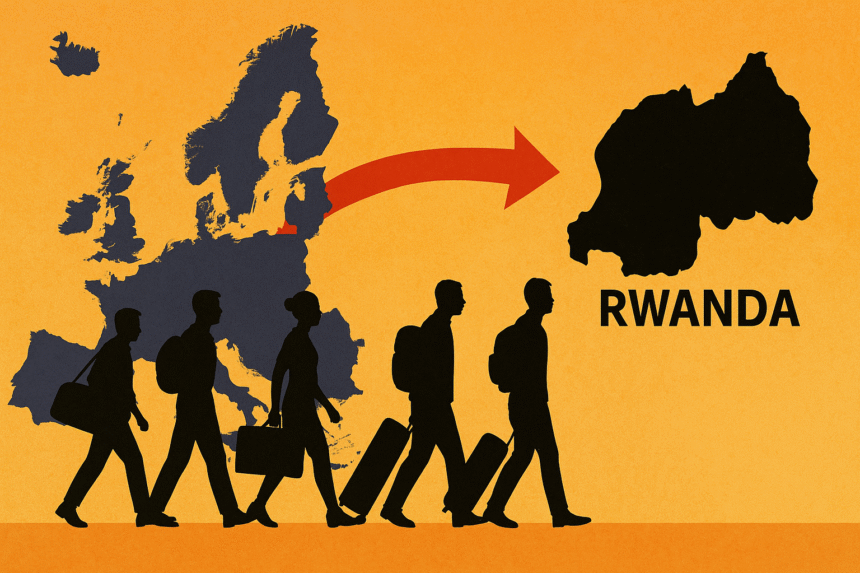While the United Kingdom has officially scrapped its controversial migrant deportation plan to Rwanda, several European Union countries are now considering reviving similar models in a broader shift toward externalising asylum procedures.
The concept — previously criticised by EU leaders as inhumane and contrary to international law — is gaining traction among right-leaning governments in the bloc amid rising anti-immigration sentiment across Europe.
Growing Momentum for Offshore Processing
Danish migration minister Kaare Dybvad, whose country currently holds the EU’s rotating presidency, said there is now “broad support” among EU member states for processing asylum seekers outside Europe. “This has so much traction now,” he told the Financial Times, noting a stark change from the backlash Denmark faced when it proposed a Rwanda scheme in 2023.
According to Dybvad, discussions with counterparts from Germany, France, Poland, and Italy reflect strong political will to explore offshore asylum centres. Germany’s Interior Minister Alexander Dobrindt echoed this stance, saying most EU countries now support models involving third-country processing.
Symbolic Shifts in Asylum Policy
Germany, once a symbol of open-door refugee policy under former Chancellor Angela Merkel, has notably shifted its stance amid political pressure from the far-right and recent security concerns. Other countries, including Luxembourg, have also hardened their positions following changes in government.
Italy, under Prime Minister Giorgia Meloni, has advanced the idea by striking a deal with Albania to establish closed centres for processing asylum claims. Though legal challenges have forced adjustments — including repurposing the facilities for migrants awaiting deportation — the move remains politically symbolic.
Brussels Offers Support, Despite Legal Challenges
The European Commission has voiced support for the “externalisation” strategy, proposing draft legislation to create a shared list of “safe” countries where asylum seekers could be sent, even without personal connections to those nations. This could revive Italy’s original plan, according to EU officials.
Germany is reportedly in talks with Rwanda to develop a deportation partnership, while the Netherlands has explored establishing a transit centre in Uganda — a move criticised due to Uganda’s harsh laws against LGBTQ+ individuals.
Despite these efforts, legal and ethical concerns persist. The UK’s plan was struck down by its Supreme Court over human rights concerns, and Italy’s efforts to label some countries as “safe” for returns faced a rebuke from the EU’s top court last week.
Criticism from Human Rights Advocates
Human rights organisations have condemned these developments, warning they erode foundational EU values.
“There is a broader trend in EU asylum policy to subordinate human rights to political goals,” said Olivia Sundberg Diez of Amnesty International. “These are unworkable and inhumane proposals that are extremely costly — both financially and in terms of human suffering.”
Activists argue that partnerships with authoritarian regimes like Tunisia and Libya — which already receive EU migration funding — risk facilitating abuses against both migrants and local citizens.
EU migration agency Frontex reported a decrease in departures from Tunisia, but a rise from Libya, underscoring the limited success of external deterrence policies.
Conclusion
As governments across Europe look for new ways to manage migration, the debate over offshore processing continues to spark controversy. While supporters argue these measures offer innovative solutions, critics warn they compromise human rights and may ultimately prove ineffective.








